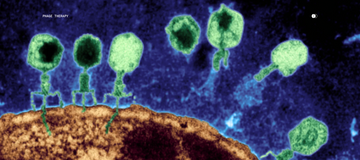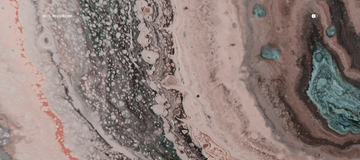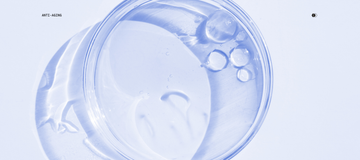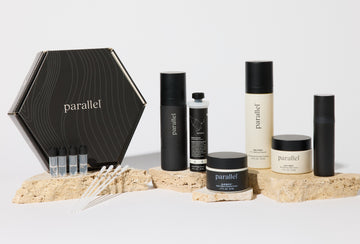Leadership Series: An Unlikely Journey from Music to Health Tech
by Natalise Kalea Robinson
Hi Natalise! Tell me a little about yourself. Where did you grow up? Where did you go to school?
I was born in San Francisco but grew up just outside of the city. Growing up, I always felt a mild tension between my science and creative sides. I went to a fairly competitive public high school, which was sort of stressful, but I fell in love with Physics. At the same time, I attended the San Francisco Conservatory of Music after school and on the weekends, where I studied classical piano, musical theatre, and opera. When I was 15, with the help of my AP physics teacher, I took my first job as an “explainer” at the Exploratorium. If you’re familiar with the Exploratorium in SF, “explainers” wear orange vests and walk around explaining exhibits. I had to be familiar with all of the exhibits from the cow eyeball dissection to the sound column to the light and electricity exhibits. I ended up going to Stanford and started as a physics major, specifically astrophysics, because of my interest in physics, but also because creatively, I loved constellations and stars. While I loved what I was learning, I still had this bug around creativity and music. Then, I got signed to a record label during my sophomore year, so I decided to switch majors (to Communication/Journalism), which allowed me to graduate early. After that, I went on tour across the United States. There’s a whole story after that, but now, years later, I’ve found myself as the CEO and co-founder of Parallel.
Wow, that’s an interesting, yet unconventional, path. How did your experiences in physics and music lead you into marketing?
After my first record, I decided to start my own label and publishing company. When you’re an indie artist, marketing is all about hustle on all levels. You have to market to get people to come to your show, buy/download your songs, and get your songs on the radio or into film and tv. It’s all about acquisition, marketing, and partnerships. In between my tours, I was also working at a major record label doing marketing for them, which included designing flyers for major bands and planning tour events.
Music and science appear very different. How did you become interested in microbiome science and decide to transition industries?
When I was working in music, colleagues with businesses began asking me to work on their GTM campaigns. I had so much interest that I started my own marketing and consulting firm (while still doing music). Eventually, I decided to go back to Stanford to get my MBA. After graduating, I knew I wanted to work at a startup so I took a COO position at a pet-tech company in Los Angeles. I transitioned from COO to CEO and was able to 5x their revenue in 18mo – ultimately making great strides. After that, I started at a mental health company and then a skincare company, where I met my future co-founder, Nathan. That was the first time I heard about the skin microbiome. One of the many things I appreciate about Nathan is that he is very passionate about bringing phages and this super safe and effective technology to the consumer space. As we got to know each other, we started talking about this vision of personalized medicine and skincare. Our philosophy was different from our previous company. Nathan asked if I would join him on this venture; I said yes on the condition that we get into the Illumina Accelerator, which we did.
After meeting Nathan at your previous company, how did you know he was “the one”? What qualities did you look for in a co-founder?
First and foremost, when you’re looking for a co-founder it’s really about three things: human connection, respect, and having a diverse skill set that is complementary. Because you spend so much time with the people you work with, you should make sure you want to be around that person on a human level. Things will be inevitably hard and you want someone who can weather the storm with you. Nathan has dedicated his entire career to phages, which is not an easy field to go into because funding was scarce, which means he did it for the passion. I respect that. We both trust each other as people and within our respective fields of expertise. We also have complementary skill sets. All of the above means that we allow each other space to do what we need to do, while able to give and receive honest feedback. I think we’re a good team.

Similarly, as you’re building your team, what have you been looking for in potential employees?
There are a few questions I ask myself:
1) Can the person do the job? Where are they on the experience spectrum?
2) Especially if they are young in their career, what is their ability to grow into their role and reach their potential? How quickly do they learn?
3) Can I lean on them when things are hard? Can they take feedback? If they make a mistake, can we get through it fairly easily?
As a small, early-stage company, I look for team players and people who are able to collaborate well. When you have a small team, you’re strapped for time and resources, but you’re expected to do things large companies do in 10 years within 1 year. We have to be a tight team that works together to accomplish herculean feats.
Right now, Parallel’s team is small, but growing. Where do you see Parallel in 30 days, 1 year, and 10 years from now – in terms of sales, location, and operations?
- In 30 days, we will have launched our beta test and started getting more people to try our first phage serum and skin microbiome test.
- In one year, we will have fully launched as a skin telehealth platform that enables people to get data on their skin health and find the right skincare products for them and personalized prescriptions.
- In ten years from now, I would think we would have expanded to different countries and expanded into other verticals.
It has been almost 2 years since starting Parallel. Now, going back in time, what advice would you give yourself back on day one?
I would tell myself to stay resilient. People are going to sway you to take the company in different ways. Continue to have conviction in our founding mission of empowered health and wellness, along with preventative, precision medicine.
You mentioned conviction in the original mission statement. What is it?
Parallel’s mission is to help you live in your best skin. We’re not trying to change who you are. We just want to empower you to be your best self.
As a company we have a few pillars: we aim to be really science-based, adhering to a gold standard, we aim to be ethical, transparent and sustainable as a company, and we stand for authenticity across the board.
Likewise, what does the brand stand for?
The brand stands for innovation, authenticity, and personal resilience.
As an entrepreneur, who inspires you?
I have many sources of inspiration. I like to read a lot of books from people in different industries. There are the stereotypical “greats” of our generation like Bill Gates, Steve Jobs, or Oprah Winfrey, but honestly, I get a lot of inspiration from many of my peers from Stanford GSB, who are doing amazing things from sustainable fashion to making housing more affordable to disrupting the healthcare industry. There's inspiration to be had in many places. I like taking gems from a diverse set of people and using what works for me.
Who do you look to for business inspiration and how do you know when to take it with a grain of salt?
If you’re a fairly self-aware person, then you probably are familiar with your strengths and weaknesses. In this case, when someone tells you something that you should improve, you probably have a sense if it’s true. They’re just reiterating what you know deep inside but don’t want to face. It may be uncomfortable and difficult, but true, so you should probably listen to it. However, if it’s something super off base, you should still listen to it and consider it, but don’t let it fluster you.
An entrepreneur's life can get hectic. What do you do to destress?
I take time on the weekends to do something totally mindless, with no goal or timeframe. It can be taking a walk to meditating or taking a drive. Everything throughout the week is timed and on a schedule, but when I can take a moment to not look at the time, especially if it involves human connection (or dog-connection!), that’s how I recharge.
How do you set boundaries with work since it’s not a normal 9-5?
I don’t have major boundaries, unfortunately. Sometimes I have meetings at 7:00 am and 10:00 pm. Sometimes I have meetings with people on the other side of the world, so it’s hard to fit a 9-5 schedule. I try to keep one full day in the week to do something fun and spend time with my husband and my dog.
If there’s someone out there who wants to be you when they grow up, what would you say to them?
This question feels self-indulgent lol, but I would say – be unafraid to make unconventional choices. It makes life interesting. Follow your heart sometimes, but use your brain. Know that things worth doing are often hard, and that’s ok; it makes you more resilient. Make it a priority to keep learning and growing. But ultimately, how you impact others, whether in relationships, with your work, or in the world, is what matters.
Questions? Ask at questions@parallelhealth.io.
About Parallel
A parallel world lives amongst us: the microbial world. This world impacts not only our lifespan, but also our healthspan.
Our mission is to empower people with real science to make meaningful skincare decisions to improve their healthspan, mental well-being, and self-confidence.
Parallel is a next-generation skin health company providing effective, personalized skincare and testing, powered by genomics, skin microbiome science, and machine learning.




























